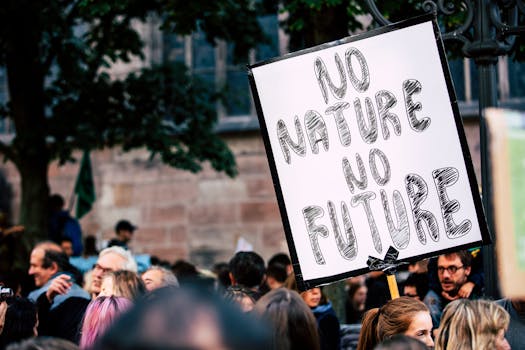
Introduction

The impact of climate change on global ecosystems is profound and far-reaching. As temperatures rise and weather patterns become increasingly erratic, the delicate balance of ecosystems around the world is disrupted. This article explores the various ways climate change affects ecosystems, with a focus on biodiversity loss, habitat destruction, and the urgent need for conservation efforts.
Biodiversity Loss

One of the most alarming impacts of climate change is the loss of biodiversity. Many species are unable to adapt quickly enough to the changing conditions, leading to increased extinction rates. According to the Intergovernmental Panel on Climate Change (IPCC), approximately one million species are currently at risk of extinction due to climate change and habitat loss. This decline in biodiversity can have cascading effects on ecosystems, disrupting food chains and weakening resilience against further environmental changes.
Habitat Destruction

Climate change contributes to habitat destruction in various ways. Rising sea levels threaten coastal ecosystems, while increasing temperatures and altered precipitation patterns affect terrestrial habitats. For instance, coral reefs, which support a diverse range of marine life, are experiencing widespread bleaching due to higher ocean temperatures. Deforestation, driven by both climate change and human activities, further exacerbates habitat loss, leading to fragmented ecosystems that can no longer support their native species.
Altered Species Interactions

As climate change alters habitats, it also affects the interactions between species. Changes in temperature and precipitation can shift the timing of seasonal events, such as flowering and migration. This can lead to mismatches in food availability and breeding cycles, disrupting the relationships between predators and prey, plants and pollinators, and other interconnected species. Such disruptions can threaten the survival of species that rely on specific ecological interactions to thrive.
Mitigation and Conservation Strategies

Addressing the impact of climate change on global ecosystems requires immediate action. Mitigation strategies include reducing greenhouse gas emissions, promoting renewable energy sources, and implementing sustainable land-use practices. Conservation efforts, such as protecting critical habitats and restoring degraded ecosystems, are essential to enhancing resilience and safeguarding biodiversity. In addition, raising public awareness about the importance of ecosystems and the threats they face is crucial for fostering a collective response to climate change.
Conclusion

The impact of climate change on global ecosystems is a pressing issue that demands our attention. By understanding the challenges posed by climate change, we can take informed action to protect our planet’s biodiversity and ecological health. It is crucial that we work together to implement effective mitigation and conservation strategies to ensure a sustainable future for both humans and the natural world.






